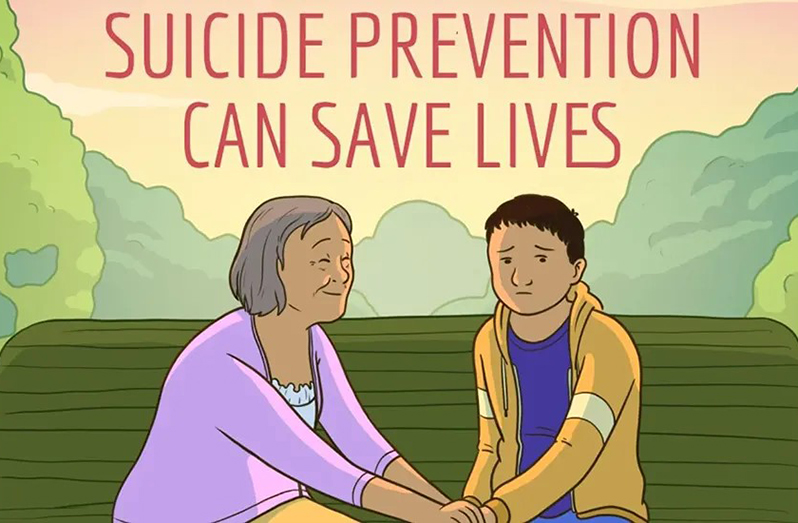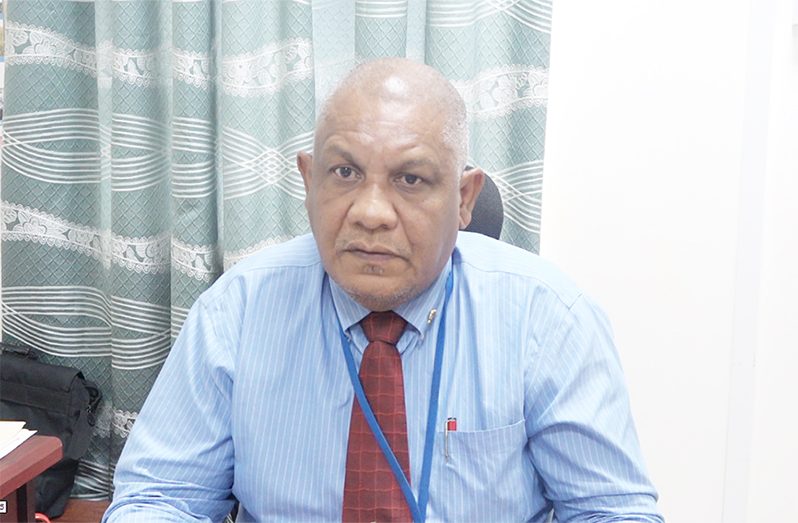…attributes success to Health Ministry’s efforts, public awareness campaigns
A SUBSTANTIAL reduction in suicide attempts and actual suicides has been observed in recent times, according to Dr. Mark Constantine, Clinical psychologist, and Head of Psychology Services, Training, and Education at the Mental Health Unit. Speaking on a recent episode of the Health Ministry’s ‘Health Matters’ programme, Dr. Constantine credited the Ministry of Health and its Mental Health Unit for their aggressive efforts in suicide prevention.
“This is largely due to the aggressive work that has been carried out by the Ministry of Health and, by extension, the Mental Health Unit,” said Dr. Constantine, emphasising that awareness and intervention have been pivotal in addressing the country’s mental health crisis.
The psychologist highlighted several contributing factors to suicide, including depression, schizophrenia, chronic anxiety, and social factors like drug or alcohol addiction and relationship issues.
He also sought to clarify common misconceptions about suicide. He noted that one of the biggest misunderstandings is the belief that individuals who commit suicide do so because they want to die. “That, of course, is a myth. That is not a fact. Persons commit suicide because they wanted to end the pain, they wanted to end the struggle. They wanted a solution to whatever challenges they were dealing with.” He went on to explain that for a person suffering from clinical depression, life can feel like standing in a tunnel with no light at either end.
“When they look left or in front of them, there’s no light. They look behind, and there’s no light either. What we have to do is show them the light.”
Dr Constantine highlighted the dual-edged nature of social media when it comes to suicide. He points out that while social media can be influential, it can also be dangerous.
Specifically, he pointed out that there are websites and online communities that provide harmful content, including detailed instructions or methods for suicide.
According to him, this accessibility to harmful information can increase the likelihood of someone who is already vulnerable or struggling with mental health issues to attempt suicide.
By acknowledging this, Dr. Constantine highlighted the need for responsible use of social media and the importance of monitoring harmful content that could negatively impact those at risk.
However, he also pointed out that social media can serve as a platform for spreading positive messages and offering support to those struggling with mental health challenges.
The Mental Health Unit, according to Dr. Constantine, provides free therapy and counselling services to individuals in need. These services are confidential, allowing people to seek help without fear of judgement or exposure. “Here, we practise confidentiality,” he said, encouraging more individuals to take advantage of the support available to them.
Dr. Constantine stressed that suicide prevention has evolved over the years, largely due to increased awareness. He emphasised that combating suicide requires a collective effort, stating, “The prevention of suicide comes with a lot of awareness. We spread a lot of awareness. It is very important for me to say that trying to alleviate the scourge of suicide is not a one-man show. And we are not going to be successful if we approach it from that angle. It is basically everybody’s business to try to prevent suicide.
“As a result of that, the Ministry of Health and the Mental Health Unit… we have been partnering with different agencies and NGOs [non-governmental organisations] in trying to prevent this problem that we have. And we do so through training sessions, printing of educational materials, awareness in schools. At the community level, we have partnered with NGOs that are doing a lot of work in this area. They have done so by going into communities across all 10 administrative regions and spread the message of suicide prevention and awareness,” he added.
The clinical psychologist shared about the positive public response to suicide awareness campaigns, stating that there has been widespread acceptance of the information and resources provided. He said that this suggests that people recognise the seriousness of the issue and understand that suicide prevention is a shared responsibility.
He then stressed the importance of family and friends in identifying warning signs of someone at risk of suicide. These signs can include isolation, discussing death, giving away possessions, saying goodbye to loved ones, or increased substance use.

However, Dr. Constantine also cautioned that warning signs may vary from person to person, meaning what is a red flag for one individual might not necessarily be for another.
This, according to him, underscores the need for vigilance and a tailored approach to suicide prevention within communities. He therefore called on community leaders to initiate meaningful activities, especially for young people. He said: “Let’s say it’s a community centre, put up positive messages… stick it up all over the place. From time to time, invite people to come and talk to these youths and instill good values in them. And help them to understand what they can do to live a life that is going to be healthy and positive…”
Dr. Constantine also addressed the stigma surrounding mental health and seeking help for it. While stigma still exists, he noted that it can be reduced through ongoing awareness and education. However, he emphasised that overcoming stigma is not just a societal issue; it also has a personal component. He explained that individuals need to recognise that mental health is just as important as physical health and should be considered part of their overall well-being.
In closing, the psychologist reminded of the importance of taking mental health breaks to manage stress and maintain well-being. Dr. Constantine encouraged supervisors to allow their staff time to pause during the workday, as it can help alleviate the pressures of both work and life.
He recommended activities like gardening, playing with pets, watching a movie, relaxing, or spending time with friends as effective ways to unwind and recharge.
Being a good listener and offering a shoulder to lean on can make a big difference, but it’s important to do so without overburdening yourself, Dr Constantine advised.
Ultimately, he stated that showing care, concern, and love for others is essential, but maintaining personal boundaries is equally important for your own mental health.
The Mental Health Unit, located at Lot 252 Quamina Street, Georgetown, provides psychological counselling and operates an alcohol and substance misuse clinic.
For assistance, you can contact them at 225-0804 or 226-1416.


.jpg)











